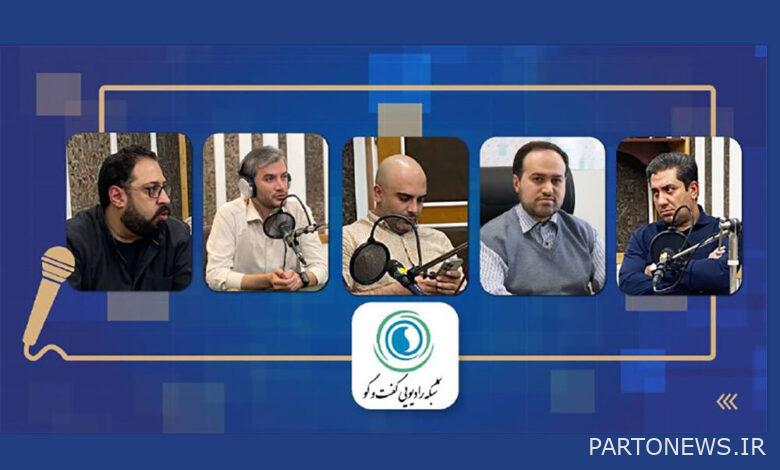Satra’s support for serials and programs licensed for production and publication – Mehr News Agency Iran and world’s news

According to the Mehr news agency, citing the public relations of the Organization for the Regulation of Inclusive Sound and Image Media in the Virtual Space (Satra), this week’s program “Cultural Dialogue” produced by Ruqieh Zahra Parandavar and performed by Mehran Dehnamaki was broadcast on Radio Diavogu. Mojtabi Rashond, producer and activist in the field of cinema, Amirhossein Heydari, representative of “Rasta” assembly in “Satra” publication council and former director of “Tamashakhone” platform, Ehsan Hoshiargar, general director of art and media of Fars news agency, are the guests of this episode on the topic of “material and intellectual rights” The audience of the “home show” network was; Also, Mohammad Sadegh Afrasiabi, the vice president of users and social regulation of Satra, also raised some points in this program as a telephone guest of the program.
At the beginning, Afrasiabi pointed out that after the approval of the Supreme Council of the Cultural Revolution, a good coordination between licensed platforms and Satra has been formed, and stated: When a platform goes to Satra to get a license, we emphasize that Satra is one of the licenses which issues, must support. When we license, we have a duty under the law to uphold our license and not allow a work distributed under Satra’s license to suffer. Of course, sometimes a series of partial considerations are formed from the side of some institutions regarding some works, such as “Secret Network of Women”, which by the way had a full license from Satra, but temporarily, due to certain cultural and social conditions, its publication was stopped and after Fixed temporary issues, restarted its broadcast.
The vice president of users and social regulator of Satra emphasized that one of Satra’s concerns is that the serials do not remain unfinished, and said: If a serial applies in the first stage, i.e. before production, at the national licensing portal, it must provide the plan and script, if the license is The production is slow, it usually does not face any problems in the stage of adaptation and publication. After the serial production or home show program is licensed, it must again apply for a publishing license through the national portal. At this stage, it is necessary for the platforms to do this, while in the previous stage, individuals can also obtain a license to obtain a production license.
He added: sometimes some criticisms of Satra are published in cyberspace about a TV series or program, and how did a certain work get a license, when we see that sequence published in cyberspace, we realize that basically this The sequence has been part of Satra’s audits and has never been officially broadcast on platforms licensed by Satra, which is not ethical to publish such things and is caused by unfairness and not referring to the version published on platforms licensed by Satra.
In another part, Afrasiabi reminded: Before the Supreme Council’s approval of the Cultural Revolution, there were some inconsistencies between different institutions, but the Supreme Council’s approval was announced by the honorable president with the aim of filling these executive gaps, and now the representatives of the Ministry of Culture and Islamic Guidance and The Attorney General of the country is present in the Satra Licensing Council and the representatives of the Ministry of Guidance and Police Force are present in the Satra Production Council, and the presence of the representatives of the judicial and law enforcement agencies automatically guarantees that the works that have been licensed will not be confiscated, besides, according to the latest review that the Ministry of Economy Satra has been ranked fifth in issuing licenses among all the country’s agencies in terms of speed and accuracy.

